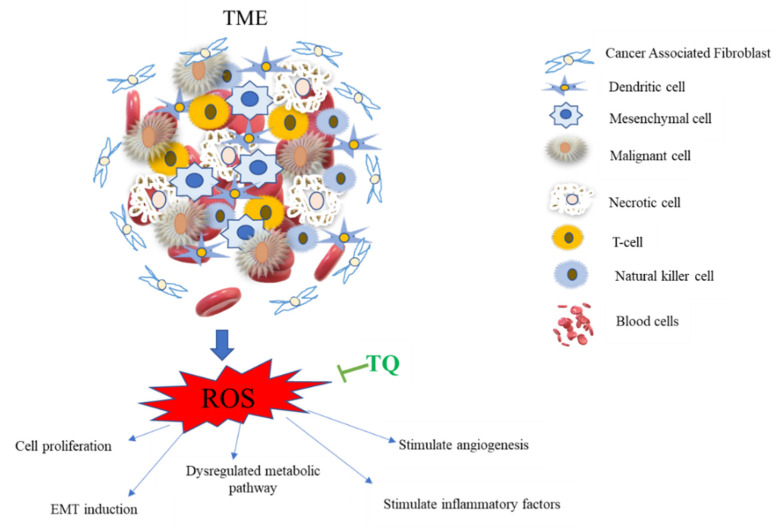Figure 3.
TQ inhibition of reactive oxygen species (ROS) production in the tumor microenvironment (TME). The TME is a complicated web of inflammatory and non-inflammatory cells. ROS boosts cancer cell proliferation, EMT stimulation, metabolic system dysregulation, and angiogenesis stimulation through altering vascular endothelial growth factors like VEGF and promoting inflammatory chemicals. The metabolic processes of glycolysis and oxidative phosphorylation are strictly controlled by ROS, with an excess of ROS resulting in a dysregulated metabolic pathway [93]. TQ counteracts all of these effects by inhibiting the generation of reactive oxygen species (ROS) via activating cytoprotective enzymes and nuclear factor-erythroid 2 related factor 2 (Nrf2).

